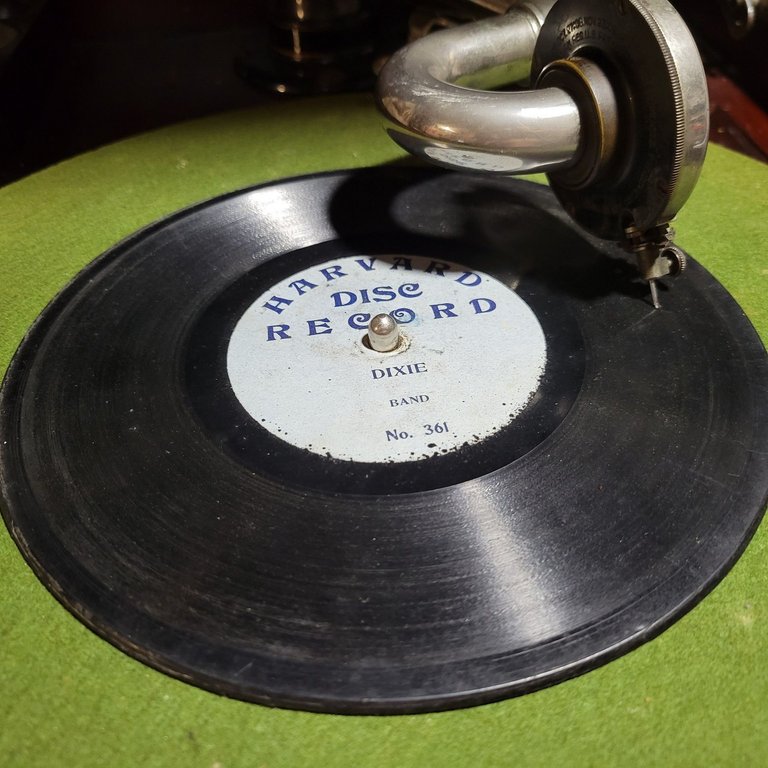Vintage Record Label of the Week - Harvard Disc Record
Think back. Think way, way back, to a time before recorded music. It's difficult for us, today, with all the world's music available to us on our phones. But there was such a time when music was only ever listened to live; it was played by family members and during gatherings, and was shared by teaching and by sheet music.
The "Harvard Disc Record" label was manufactured in the U.S. by the American Graphophone Company (Columbia) between 1905-07, and were sold through Sears Roebuck & Co as a low-cost alternative to Columbia's regular catalog.
The label was created to match the name of an inexpensive external-horn phonograph that the American Graphophone Company produced for Sears Roebuck & Co. The phonograph was named after Harvard University, presumably to appeal to the educated and cultured market. The records were also branded with a Harvard pennant, which was a popular symbol of college spirit at the time.

The records came in two sizes: 7" and 10". The 7" discs had plain light-blue labels, while the 10" discs had orange on gray labels. Both sizes were single-sided, meaning that only one side of the disc had a groove with recorded sound. The catalog numbers of Harvard releases were identical to those of corresponding Columbia records, but the artists and titles were not credited on the labels. This was probably done to avoid paying royalties to the performers and composers, as well as to conceal the origin of the records from Columbia's competitors.
The material on Harvard records was recorded as early as 1902, and consisted of popular songs, instrumental music, comedy sketches, speeches, and other genres. Some of the notable recordings include Lincoln's Speech at Gettysburg by Harry Spencer, Selections from "Martha" by an unknown opera singer, and Negro Laughing Song by an unknown minstrel performer. The sound quality of Harvard records was inferior to Columbia's regular output, as they used older masters and cheaper materials.
Sears Roebuck & Co discontinued the Harvard Disc Record label in early 1907, in favor of another budget label called Oxford Disc Record. Oxford discs replaced Harvard discs in Sears' catalogs, and offered a wider selection of music and spoken word. Oxford discs were also manufactured by Columbia, but used newer masters and better materials than Harvard discs. Oxford discs lasted until 1916, when Sears switched to another supplier for its record business.
The Harvard Disc Record label is a fascinating example of how record companies and retailers tried to cater to different segments of the market in the early days of recorded sound. Although Harvard records are not very valuable or sought-after by collectors today, they offer a glimpse into the musical tastes and preferences of ordinary Americans in the first decade of the 20th century.
Previous Record Labels:
- Homokord
- Cairophone
- Vocalion
- Apollo
- Madison
- Cameo
- Grey Gull
- Rodeheaver/Rainbow Records
- Gotham
- Leeds
- Berliner
- Austroton
- Viking Records
- Clarion
- Algene
(c) All images and photographs, unless otherwise specified, are created and owned by me.
(c) Victor Wiebe
Blind Skeleton
Online Radio! 24x7 of OTR classics:
Live shows:
- Three Tune Tuesday Live Stream: 12:00pm (noon) EST
- Electric Dreams Live Stream: 2nd and 4th Wednesdays, 8:30pm EST
The Skeleton Brew coffee shop is open!
